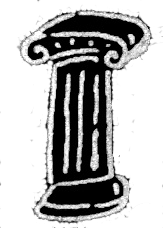REAL SELF, FALSE SELF
When did you first know, or realize, or became conscious of your self, your sense of yourself? For me that realization began with others’ description of me. My parents and relatives would often address me with little descriptive tags: cute, smart, quiet, shy, quick, good (obedient)… Such little feedback remarks I believe began to form a nidus of awareness that set up a reference, an internal informative pattern about who and what I was, that I was a person. That feedback was of course enhanced by their behavior toward me, forming boundaries of inclusion or exclusion, conveying attitudes of affection or disapproval. Soon a self forms surely informed by the acquired responses to others, to what they conveyed about me. But also a germinating self had been forming based on genomic and epigenetic factors, an incipient germ of character, of personality.
Heavy stuff, yes?
Although we may seem to present a different self, an adaptive face, that responds to the instant context. Social forces tend to tweak those responses. What we present is not a fraudulent self, just the one we kit out to match that context. But the sum total self, tossing in its formative stage within the small boundary of the nuclear family, is yet larval, not fully formed, not stable.
Behind the various aspects of the self that is on show at any given time is a forming real self, the “I” that operates to express one’s initiative, the “I” that basically seeks to be home in the world where it exists. With its adventitious warts and all the derivatives of social experience and the stream of self-directed behavior, this real self is a key coping factor in everyone’s life.
But like all formative processes that occur within the limits of a nuclear family, the self forms to a significant degree on the whims expressed and demanded by that family.
Under the best conditions, the result is the concept of a Real Self, which refers to one’s authentic identity, including one’s true thoughts, feelings, and desires. The real self is characterized by genuine self-expression, alignment with personal values, and emotional honesty and contributes to a sense of fulfillment, personal happiness, and deeper relationships. It is further developed through self-awareness, introspection, and authentic experiences.
When early events in life force one to bend to imposed expectations in order to gain and maintain approval and minimize vulnerability, a false façade begins to form, ultimately leading to a False Self which operates in the place of the Real Self, an actual usurpation and a complete set of coping mechanisms. The False Self typically presents as an alternate, often distorted personality, accompanied by inner conflict, dissatisfaction, and even a sense of disconnection from one's true identity.
Our sense of self, Real and False, is a fragile part of the human condition, a necessary aspect of our cultural evolution. In order to participate in a social order, a self is a necessary constituent but one that endures by convenience, compromise, competition, and cooperation. The fragility stems form early development. Though we are, as a species, very robust creatures we begin none-the-less as very helpless little beings requiring enormous amounts of input. Creating a sense of self and able to achieve and maintain a Real Self is an accomplishment as well as a lifelong achievement.
Neurobiology has begun to locate where in the brain the self, or self-consciousness, operates. But temporal issues such as the development of those sites over time and the moment-to-moment operations of self-consciousness as it responds to events are yet to be studied.
We may have been able to send a roving, probing device to Mars, extract a piece of rock with possible biosignatures and eventually bring it home. But the self, True or False, the very powerful feature of every human life and of every social matrix, remains a distant planet much like the sun.
The self gives us light, various quantities of heat and a powerful sense of gravity.

